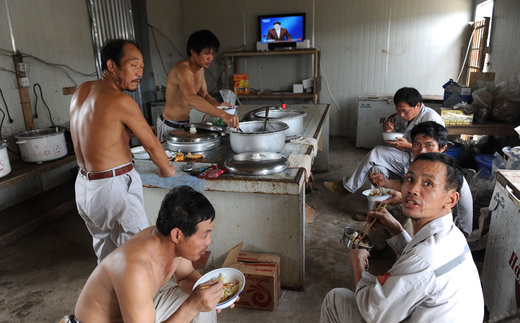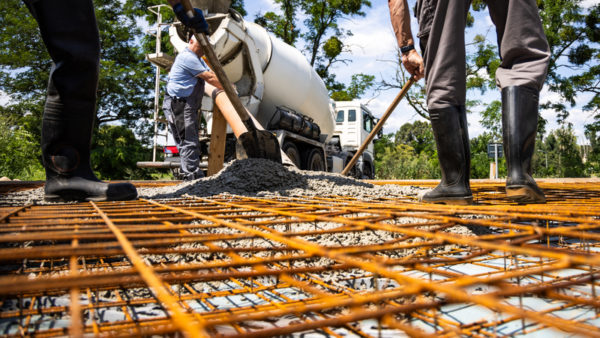3 May 2013
Last year five of the top 10 global contractors by revenue were Chinese, according to ENR.
Some feel this picture is distorted because Chinese contractors win so much overseas work in developing countries, especially in Africa, on the back of generous, bilateral state loans.
But while this has been the case in the past, one expert believes Chinese firms are evolving quickly and will soon be competing in the global marketplace like everybody else.
He predicts that their entry onto the world stage could be the UK, with its opposing needs for infrastructure and debt reduction.
And he says governments in the developed world may need to come to terms with the fact that Chinese companies do come with their own workers.
Shourav Lahiri, Beijing-based partner of law firm Pinsent Masons and experienced advisor on international infrastructure projects, told GCR that developing nations in Africa and southeast Asia have been good testing grounds for Chinese companies, giving them a technical, commercial and organisational basis for a launch onto the wider world.
“That stage of development has taken them to the next strata now,” Mr Lahiri said.
He said he personally knew several Chinese contractors bidding for work in the developed world, but would not name them because they were clients.
“It’s a pattern that has been quite significant,” he said, “particularly as contractors go up the chain and become investors in projects. That is quite common now, quite widespread.”
And he said Chinese contractors have been actively skilling up for this new phase of expansion.
“They attract some of the brightest graduates from Chinese universities,” he said. “These people are not just bright, they’re bilingual, even trilingual.
“Companies are starting very early in capturing people who will, in five or six or seven years, go overseas and run projects for them. That sort of recruitment has started.”
Mr Lahiri said Chinese firms are also now engaging quality international advisors in finance, accounting, and law to help them navigate international waters better.
“There has been quite a mind shift in the last five years in them believing that there is value in international quality advice,” he said.
“That helps them understand the commercial position of projects where previously they didn’t have to worry about it so much because somebody was funding it and they were to a great extent protected from defaults from the home governments.”
So do they have the same profit pressures now? Mr Lahiri says they do.
“Big state-owned-enterprises operate as a number of subsidiary companies, departments and bureaus,” he said. “The profitability of each individual department or bureau is taken very seriously. They do not enter into projects with a uncaring attitude as to profit just because the parent company has said they should go into it.”
Bring your own labour?
Mr Lahiri predicts that Chinese contractors could start winning work in the UK in the next three years, particularly in sectors where major projects are on the table – rail, wind power and airports.

Employees of Chinese firm Sinohydro eat a meal after work on a construction project in Equatorial Guinea, West Africa, January, 2012. (Credit: Abdelhak Senna/AFP/Getty Images)
“They’re probably likely to be doing the work in joint venture with a British firm, or they would be taking stakes in projects,” Mr Lahiri said.
He said the purchase last year of a 9% stake in Thames Water by China’s sovereign wealth fund, China Investment Corporation, could be seen as “dipping their toes in the water”.
Surely a sticking point, though, in the economically stagnant West, would be the preference Chinese companies have for bringing in their own workers?
“That’s a valid concern,” Mr Lahiri said. “The reason they can promise a certain level of quality and speed is because they have trained labour that can follow their way of working. I don’t know what the answer to this will be. Governments of developed countries want the infrastructure and the votes, and these two things are sometimes inconsistent.
“At some point governments in the developed world may have to make a choice as to what they can do to accommodate the Chinese way of building.”
“In time this issue will go away as the Chinese become more sophisticated in technology and provision of services so that their labour component is not the biggest draw, but in the interim I think regulations will have to be brought about to enable this temporary labour to come in to build.”
“However,” he added, “even apart from labour, Chinese technology and equipment is getting more sophisticated and is also being preferred to European equipment in a number of countries. Employers engaging Chinese companies to supply equipment do not have to deal with the tricky issue of labour.”
The Polish job
While China State Construction Engineering Corp. (CSCEC) has done several major projects in the United States, and while Chinese curtain wall specialist Yuanda won a substantial works package on the London tower known as the Cheesegrater in 2011, many people think of “the Polish job” as the defining example of Chinese firms’ attempts to do business in the developed world.
In 2011, amid disputes and delays, China Railway Group subsidiary COVEC exited a disastrous project to build a section of the Warsaw-to-Berlin highway, the A2 – a project it had won on a controversially low bid.
But Mr Lahiri says that the A2 project wasn’t representative of Chinese contractors executing projects overseas.
“I have looked at China for many years both from outside and from inside, and they get a bad press,” he said. “But it’s not preventing employers who really know about their work from choosing them, because they go and look at their projects and the quality of what’s being produced, and the speed at which it’s being produced, and they say, we’ll go for these guys.”
“Employers and consulting engineers and architects do think the Chinese bring a lot of value, increasingly in terms of quality, whereas until recently it has been in terms of speed and cost.”
He concluded: “Their place on the ENR lists is a fact. It’s because of what their revenues are, and they wouldn’t be getting that revenue if people didn’t trust them to do the work.”






